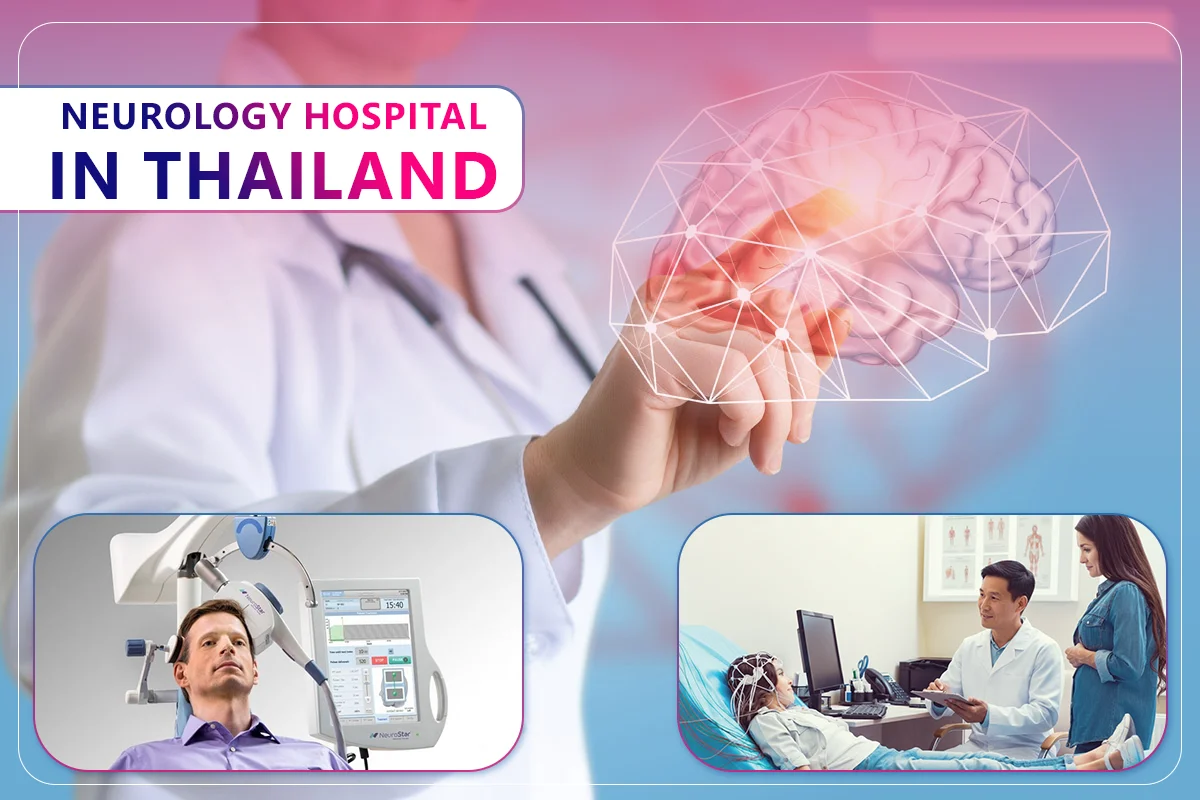Neurological conditions usually range from common brain issues like migraines and neuropathy. These common issues turn into complex disorders like stroke, brain tumours, and multiple sclerosis. If we talk about neurology hospitals in Thailand, then it is quickly becoming a go-to destination. Whether it’s a common issue or a more serious condition, you can get advanced care all in one place. Thailand makes it simple for locals and foreign tourists to receive excellent neurological treatment in Thailand with its highly qualified medical professionals, advanced technology, and reasonably priced therapies.
Why Choose Thailand for Neurology Treatment?
If we talk about the best neurology hospital in Thailand, then Thailand has become one of the best choices for all patients worldwide. Thailand combines highly skilled, experienced neurologists in Thailand for brain surgery and modern technologies to provide patient-centred care. Most of the hospitals in Thailand have dedicated stroke units for neuro care. Whether you’re looking for an early diagnosis or minimally invasive treatment, you can get it all under one roof in Thailand.
Advanced technologies like MRI, PET scans, and Neuro-navigation are available in Thailand. Thai neurologists are highly skilled in countries such as the US, Europe, and Japan. Thailand provides top-class services while keeping the cost reasonable compared to other Western countries. So, if you’re looking for affordable neurology treatment but world-class care, then Thailand is the best choice for you.
Common Neurological Conditions Treated in Thailand
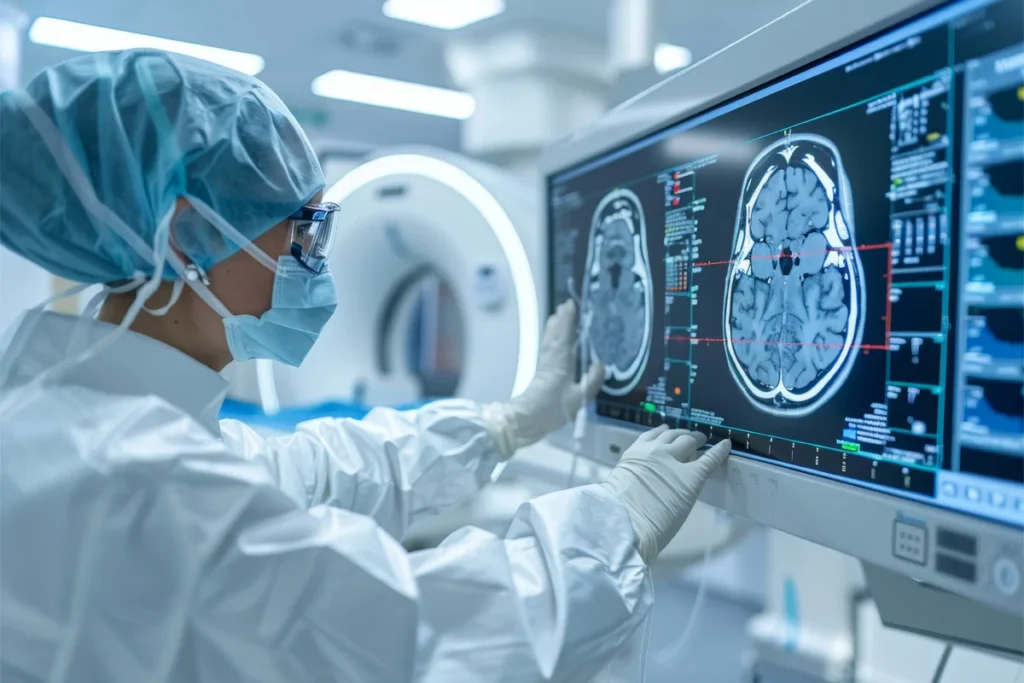
Neurology hospitals in Thailand are highly specialized in diagnosing and managing many types of disorders. Here are some common conditions:
- Stroke
- Epilepsy
- Parkinson’s Disease
- Migraines and Headaches
- Brain & Spine Tumours
- Memory Problems (Alzheimer’s and Dementia)
- Nerve Pain and Neuropathy
- Spinal Disorders
Stroke
Stroke is one of the common neurological emergencies in Thailand. Thailand’s most hospitals have an individualized emergency section for handling these emergencies. Thai hospitals have been operating 24/7 emergency stroke centres to provide immediate care. Doctors use all types of advanced technologies to identify stroke quickly. It involves imaging tools like CT scans, MR, and angiography. Their emergency options include minimally invasive procedures and clot-busting medications as well.
Epilepsy
Epilepsy is usually known as a condition that causes recurrent seizures. Thai hospitals make sure to provide advanced care for both children and adults living with the disorder. Their neurology center in Thailand uses modern diagnostic tools like EEG, Video Monitoring, MRI, and CT scans to track the seizure activity. If any of the patients are not responding well to the medication, then Thai hospitals make sure to offer advanced options. It involves minimally invasive procedures guided by neuro-navigation systems, vagus nerve stimulation (VNS), and epilepsy surgery.
Parkinson’s Disease
Parkinson’s Disease is a progressive neurological disorder that affects movement. It usually causes tremors, stiffness, and difficulty with balance and other conditions. Thailand’s hospitals started the treatment of this disease through advanced neurological assessments and imaging. Patients whose symptoms are difficult to control with medicine get specialized care. They are offered advanced options like deep-brain stimulation DBS to regulate abnormal brain activities.
Migraines and Headaches
Migraines & Headaches are the most common neurological problems in Thailand. Neurologists usually begin to treat this with brain imaging, blood tests, and lifestyle assessments to identify possible triggers. Treatments are combined with medications to relieve pain and prevent attacks. Patients who face frequent migraines are treated with botulinum toxin (Botox) injections, nerve blocks, or neuromodulation therapies. Thai hospitals not only focus on reducing the intensity but also make sure to make a personalized plan.
Brain & Spine Tumours
Brain and spine tumours usually require specialized care. Thailand’s hospitals are well-equipped with modern technologies to treat brain and spine tumours. These diagnoses are usually done by MRI, CT scans, PET scans, and biopsies as well. Microsurgery, stereotactic radiosurgery (Gamma Knife or CyberKnife), minimally invasive neuro-navigation-guided surgery, and conventional or targeted radiation therapy are typically available as treatment options.
Memory Problems (Alzheimer’s and Dementia)
Alzheimer’s and Dementia are progressive neurological conditions that affect memory. Thailand’s hospitals provide specialized services for early detection and ongoing management. In order to determine the type and stage of dementia, the diagnosis typically includes neurological examinations, memory and cognitive tests, brain imaging (MRI, CT, PET scans), and laboratory testing.
Nerve Pain and Neuropathy
Nerve pain is known as neuropathic pain and conditions that happen when nerves are damaged. These conditions usually occur when nerves are damaged and not functioning properly. It can cause burning, tingling, numbness, weakness, or sharp pain in the hands and feet. Thai hospitals use advanced diagnosis tools for these underlying causes. It usually includes diabetes, infections, injuries, autoimmune disorders, or side effects of medication. The goal of treatment is to manage the underlying cause as well as relieve symptoms.
Spinal Disorders
Spinal disorders are neurological and orthopaedic concerns that cause many issues like back pain, nerve compression, and even paralysis. Hospitals in Thailand provide care for a wide range of spinal problems. It includes herniated discs, spinal stenosis, scoliosis, degenerative disc disease, spinal cord injuries, and nerve root compression. These diagnoses are usually carried out with advanced tools like MRI, X-rays, and nerve conduction studies.
How to Choose the Best Neurology Hospital in Thailand
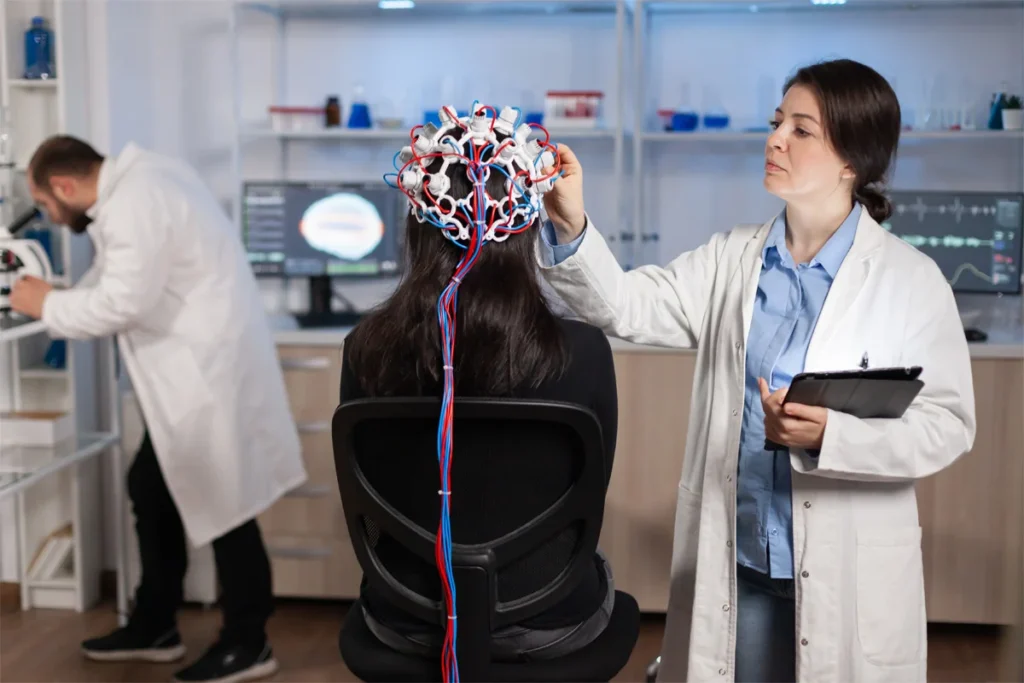
Choosing the right neuro hospital in Thailand depends on many factors. If you’re looking to treat your treatment in Thailand, then you should focus on many factors to make a big difference. Here are some points that you should focus on while choosing a hospital in Thailand:
- The first step should be to research hospitals that have dedicated neuroscience and neurology centres.
- Check if they are offering advanced diagnostics like MRI, CT scans, EEG, EMG, and neuro-navigation systems.
- Inspect the qualifications and experiences of the neurologist and neurosurgeons
- Look for the specialities of the surgeons that match your requirements
- Check the hospital’s facilities and look for their success cases on your related treatment
- If you’re an international patient, then check if they are providing international patient services or not.
- Check the range of treatments that are offered, including both medical and surgical options.
- Lastly, compare the treatment costs and package costs between your chosen hospitals.
If you focus on the above factors, you can easily choose a hospital in Thailand that meets your needs.
Top Hospitals for Neurology Treatment in Thailand
Thailand is a leading destination for both local and international patients. Thailand usually combines highly skilled neurologists and advanced technologies to treat patients. Whether you’re seeking emergency care or simple neurosurgery, long-term rehabilitation, Thailand has it all.
Here’s a list of top-rated neurology hospitals in Thailand that provide specialized care in neurology treatments:
- Bangkok International Hospital (Brain x Bone)
- Bumrungrad International Hospital
- Samitivej Sukhumvit Hospital
- Vejthani Hospital
- MedPark Hospital
Bangkok International Hospital (Brain x Bone)
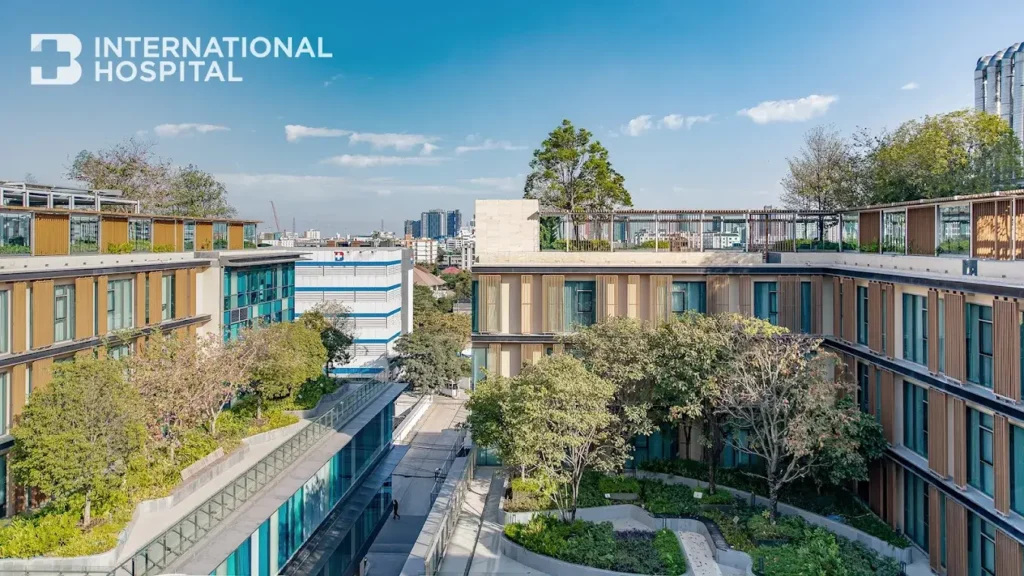
Bangkok International Hospital is also known as the Brain x Bone Hospital in Thailand. It specializes in both neurology and orthopaedics treatment. According to the Newsweek Best Specialized Hospitals Asia Pacific 2025 – Neurology Ranking list, Bangkok Hospital ranked 62nd and at the top of the Thailand Neurology category. The hospital’s commitment to neurological care is evident through its cutting-edge treatments and highly skilled medical staff.
Bangkok Hospital’s neurology center provides advanced diagnostic and treatment for neurological disorders. It includes disorders like stroke, epilepsy, Parkinson’s disease, memory problems, and sleep disorders. They use advanced technologies like MRI, EEG, and robotic-assisted therapy to maintain specialized care. Bangkok Hospital provides world-class care and a patient-centered environment by providing services and creating packages for medical treatment in Thailand and for international patients.
Bumrungrad International Hospital
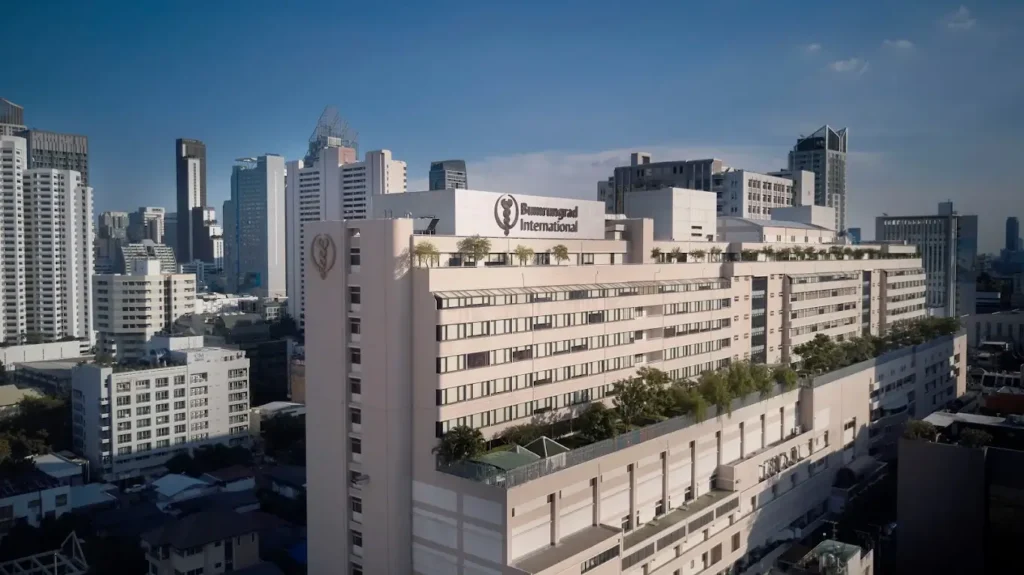
Bumrungrad International Hospital is one of Southeast Asia’s largest private hospitals. Bumrungrad is ranked 88th in the Best Specialized Hospitals Asia Pacific 2025 – Neurology by Newsweek, further emphasizing its leadership in the field. Additionally, its neurosurgery department ranks 65th in the Best Specialized Hospitals Asia Pacific 2025 – Neurosurgery, reflecting its advanced treatments for brain and spine disorders. It has an advanced neuroscience centre that provides a full spectrum of services.
The neuroscience centre at Bumrungrad has 30+ specialities, which include neurologists and neurosurgeons. It includes interventional radiologists and rehabilitation experts as well. These teams collaborate to offer personalized care for all types of conditions. The hospital is equipped with advanced technologies like MRI, MRA, CT scans, and other monitoring tools. Over 1 million patients visit the hospital each year, including over 500,000 foreign patients from more than 190 countries, because of its high-quality care.
King Chulalongkorn Memorial Hospital

King Chulalongkorn Memorial Hospital is a prestigious medical institution in Thailand. This hospital is renowned for its excellence in both neurology and neurosurgery. The hospital’s neurology department offers comprehensive care for complex conditions such as stroke, epilepsy, and neurodegenerative diseases like Alzheimer’s. They have the latest diagnostic tools and advanced treatment options for neurological disorders.
As one of the top hospitals in the Asia Pacific, King Chulalongkorn Memorial Hospital is ranked 64th in Best Specialized Hospitals Asia Pacific 2025 – Neurology and 35th in Best Specialized Hospitals Asia Pacific 2025 – Neurosurgery by Newsweek. This prestigious recognition underscores the hospital’s commitment to providing world-class care. King Chulalongkorn is also well-known for its innovative neurosurgery procedures, treating a wide range of brain and spine disorders with state-of-the-art techniques.
Samitivej Sukhumvit Hospital
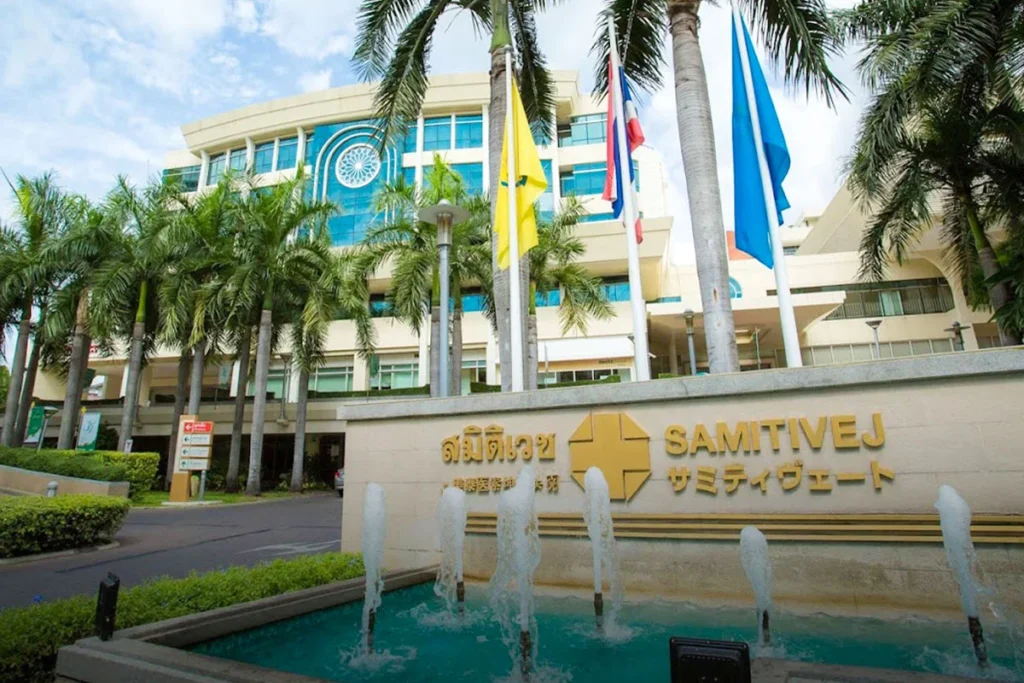
Samitivej Sukhumvit Hospital offers a lot of neurological treatments, such as diagnosing and treating stroke, epilepsy, Parkinson’s disease, dementia, and chronic headaches. The facility has cutting-edge imaging equipment and makes individualized treatment regimens that are tailored to each patient’s specific needs. Its neurologists are experts at treating both common and rare neurological problems, and they use the most up-to-date methods in neurology care.
Newsweek ranked Samitivej Sukhumvit 89th in Best Specialized Hospitals Asia Pacific 2025 for Neurology, which is another reason why it is well-known for its full care. The hospital’s focus on the patient means that people get the finest possible care in a warm and welcoming setting.
Vejthani Hospital
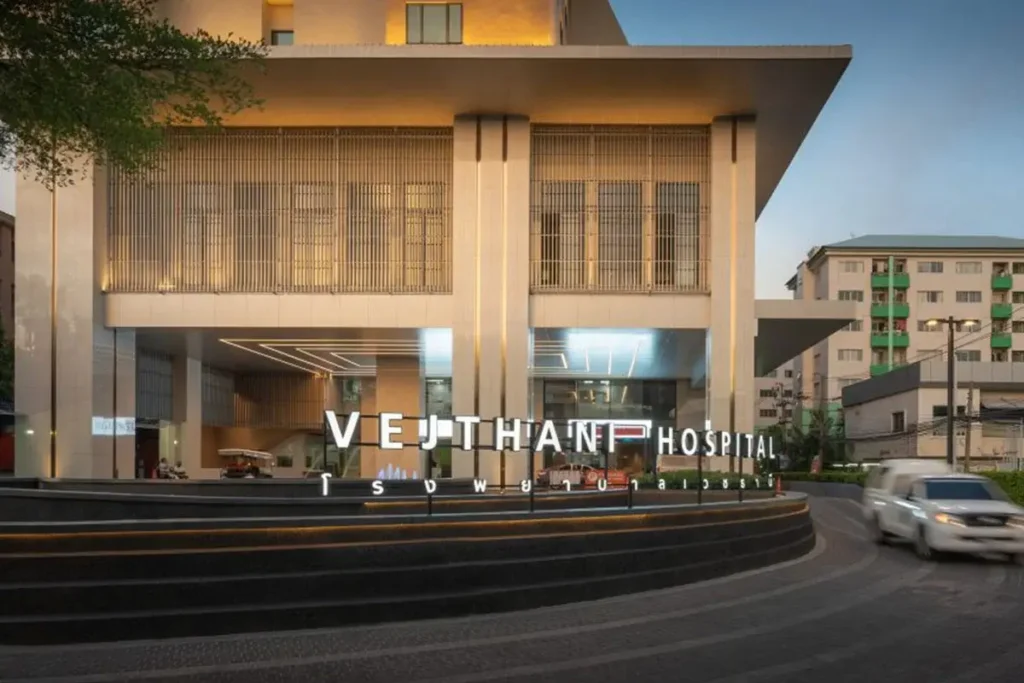
Vejthani Hospital is a well-known healthcare provider that offers a wide range of neurological services, such as emergency care for strokes, treatment for epilepsy, and neurorehabilitation. The hospital’s Neurological Center has cutting-edge diagnostic tools and offers quick response services for stroke patients, making sure that interventions are quick and effective. Vejthani also provides state-of-the-art neurorehabilitation treatments, such as robotics-assisted therapy, for those who are recuperating from neurological problems, including stroke or spinal cord injuries.
The hospital sees more than 300,000 patients each year, including some who need specialized neurological care. Vejthani is still one of the best places in Bangkok to get full neurology services because it has highly trained neurologists and the latest technology.
MedPark Hospital
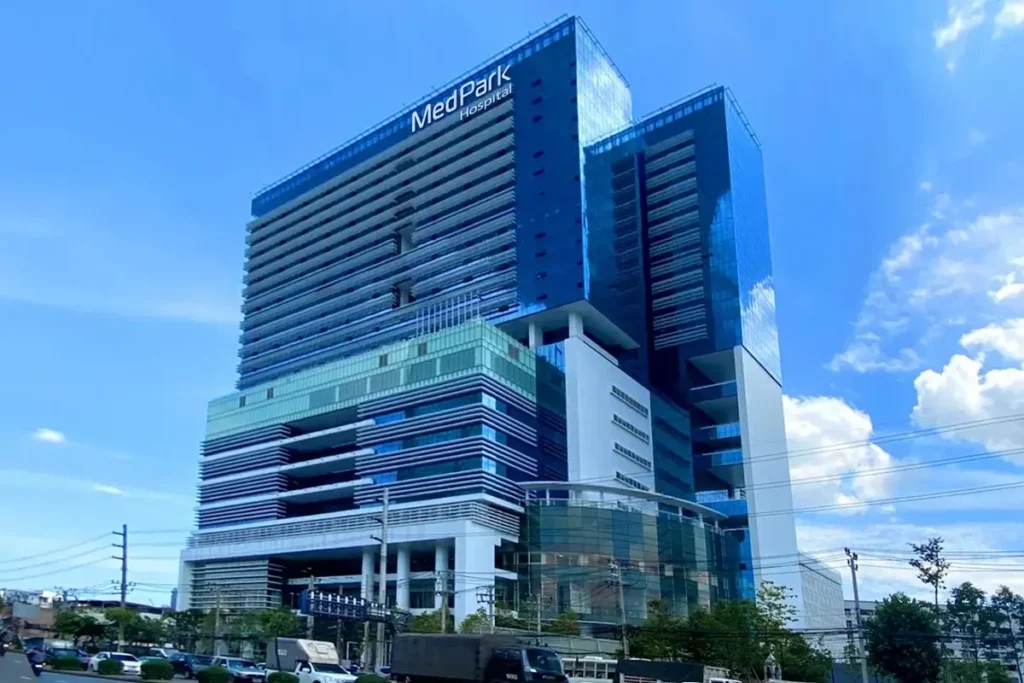
MedPark Hospital is well-known for its dedication to giving people with neurological disorders the best care possible. The hospital has state-of-the-art diagnostic tools and a comprehensive range of therapies for people with neurological diseases like stroke, spinal injuries, and neurodegenerative disorders. MedPark also has specialized neurorehabilitation programs for people who are recuperating from neurological diseases. These programs make sure that each person’s recuperation is personalized to their specific needs.
MedPark is a popular choice for overseas patients looking for high-quality neurological care since it offers bilingual support and individualized treatment packages. People know that the hospital is good at neurology and neurosurgery, and it keeps giving great care to more and more patients.
Specialised Neurology and Neurosurgery Services
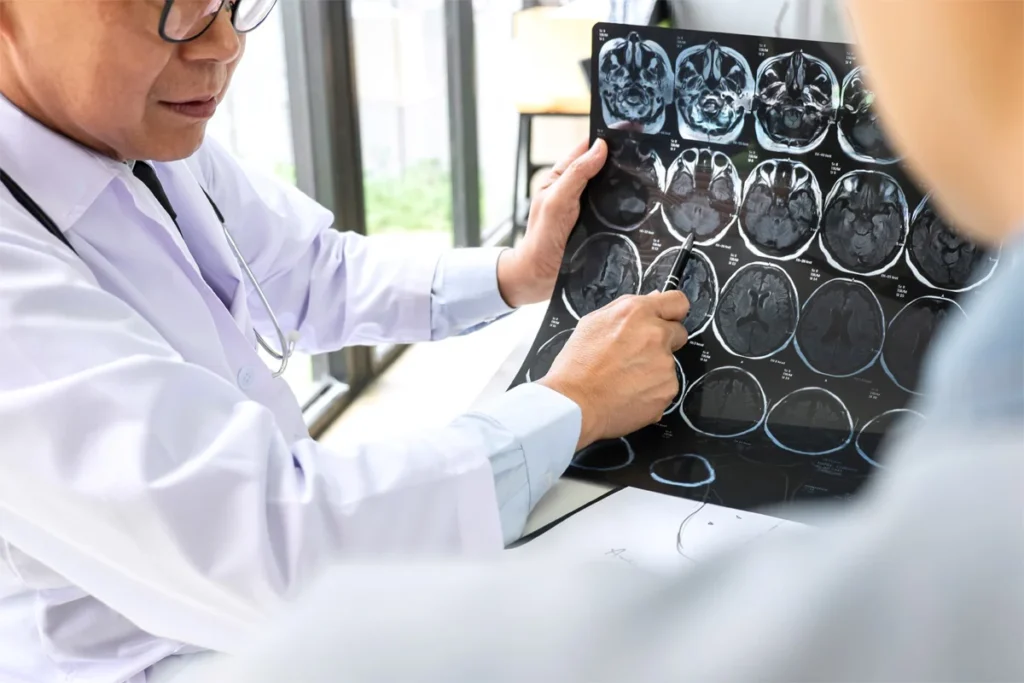
Patients from all around the globe prefer services related to neurology and neurosurgery in Thailand. It has over 60 Joint Commission International-accredited (JCI) hospitals. Most of the hospitals there provide specialized care without any comparison. They use modern technologies like robotic-assisted surgery so that they can provide precise care to all the patients. Neurology and Neurosurgery Services in Thailand are famous for their affordable neurology treatment. The treatment cost in Thailand is usually 50–70% cheaper than in other Western countries.
Cost of Neurology Treatment in Thailand
Thailand still provides top-notch neurology care at a significantly lower cost than many Western nations. Compared to costs in the US or Europe, patients can typically save a lot more. Advanced brain procedures like deep brain stimulation or tumour removal can cost between $15,000 $40,000.
Craniotomies and spinal decompression procedures often cost between $8,000 and $20,000. The cost of non-surgical therapies for ailments like migraines, epilepsy, or neuropathy has decreased, and diagnostic scans and expert consultations are now reasonably priced. For patients seeking neurological care, Thailand’s hospitals provide a dependable and reasonably priced alternative by fusing cutting-edge technology with global standards.
Patient Experience & International Services
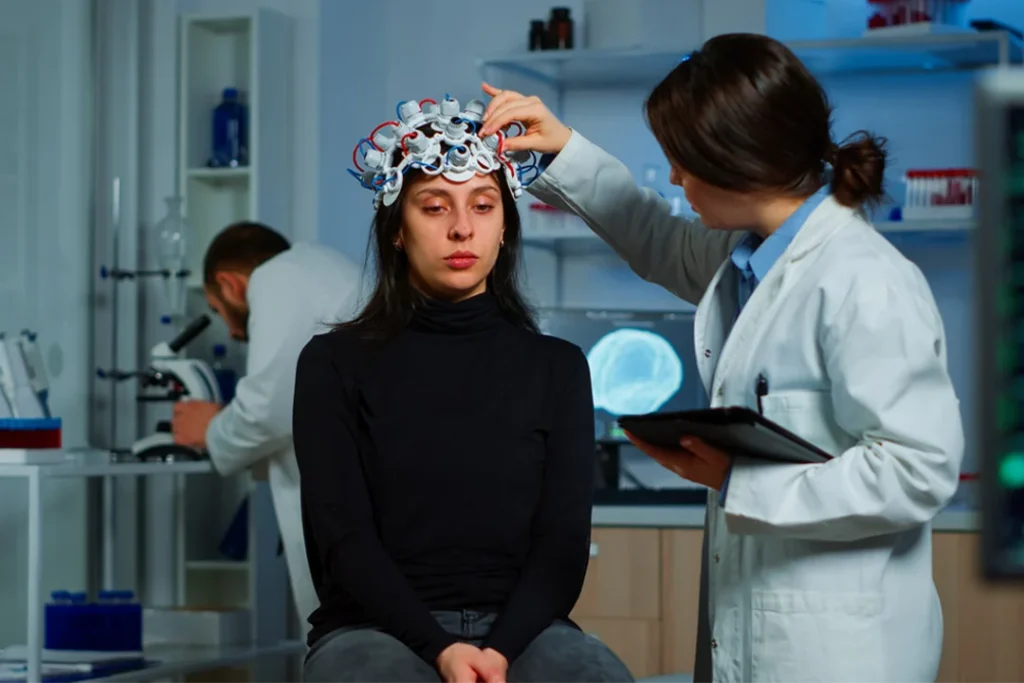
Thailand is well known for its smooth and stress-free medical treatment. It is not only known for its expert specialized care but also for excellent international services. Most of the hospitals offer multilingual support 24/7. They also help with appointments, billing, and follow-up.
As an international patient, you can also get help with visa arrangements, airport transfers, and accommodation. Many hospitals provide telemedicine consultations before and after treatment so patients can stay connected with the doctors. Combined with the warm hospitality, patients feel supported in every step of their medical journey in Thailand.
Tips for International Patients
If you’re thinking about flying to Thailand for neurology treatment, then a little preparation goes a long way. Here are some basic tips that you should keep in mind before flying to Thailand for treatments:
- Gather all of your medical records and test results
- Check hospitals accreditations
- Book hospital or doctor’s appointments in advance
- Ask about their packages and discounts
- Plan some extra days of follow-up visits
Conclusion
Neurology Hospital in Thailand is a great place to get neurology care as it has highly qualified medical professionals, advanced technology, and affordable treatments. Patients receive top-notch care for both common and complicated disorders, along with seamless international services like follow-ups, visa assistance, and multilingual support, which makes treatment simple and stress-free.
